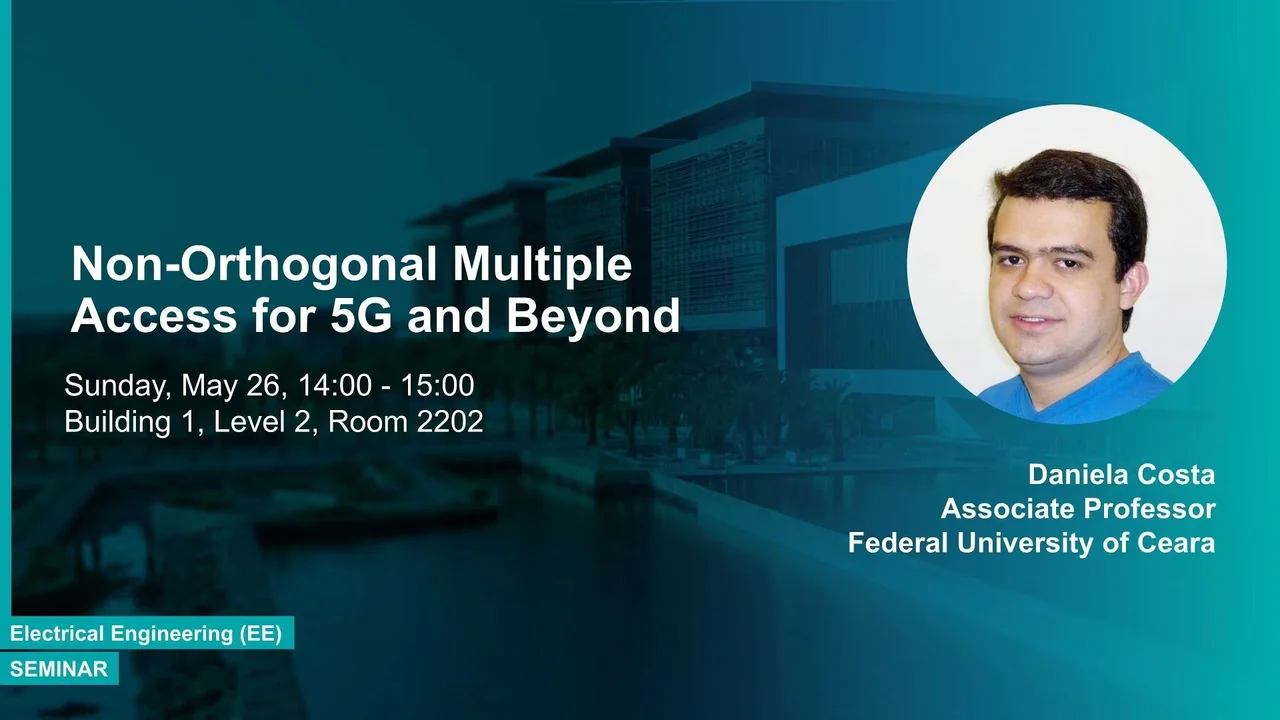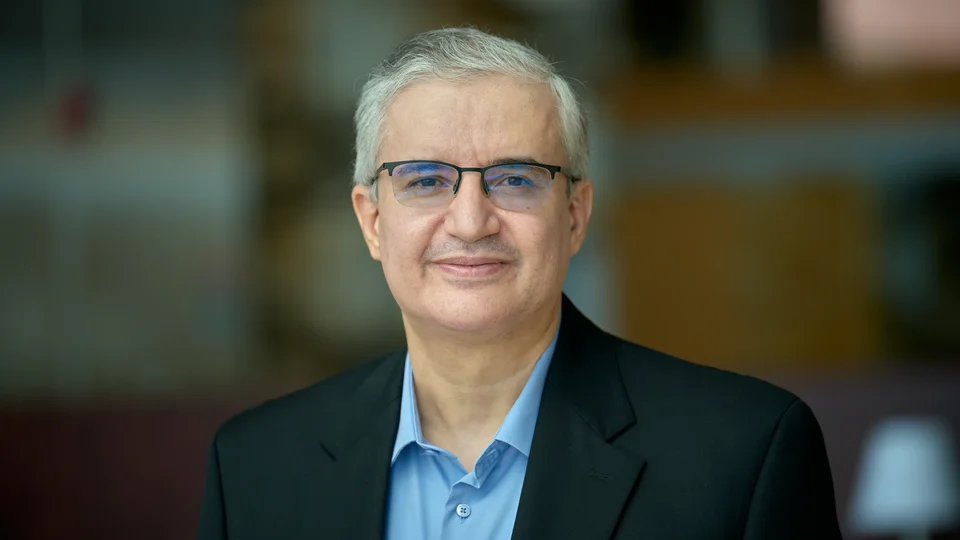
Non-Orthogonal Multiple Access for 5G and Beyond
Non-orthogonal multiple access (NOMA) has recently emerged not only as a new design of multiple access techniques in cellular networks, but also as a general principle of network architecture for applications beyond cellular systems. This talk will present and discuss the fundamentals of NOMA, and examine how it can be combined with other emerging communication technologies. Some new research trends and challenges will also be discussed.
Overview
Abstract
Non-orthogonal multiple access (NOMA) has recently emerged not only as a new design of multiple access techniques in cellular networks, but also as a general principle of network architecture for applications beyond cellular systems. This talk will present and discuss the fundamentals of NOMA, and examine how it can be combined with other emerging communication technologies. Some new research trends and challenges will also be discussed.
Biography
Prof. Daniel B. da Costa was born in Fortaleza, Ceará, Brazil, in 1981. He received the B.Sc. degree in Telecommunications from the Military Institute of Engineering (IME), Rio de Janeiro, Brazil, in 2003, and the M.Sc. and Ph.D. degrees in Electrical Engineering, Area: Telecommunications, from the University of Campinas, SP, Brazil, in 2006 and 2008, respectively. His Ph.D thesis was awarded the Best Ph.D. Thesis in Electrical Engineering by the Brazilian Ministry of Education (CAPES) at the 2009 CAPES Thesis Contest. From 2008 to 2009, he was a Postdoctoral Research Fellow with INRS-EMT, University of Quebec, Montreal, QC, Canada. Since 2010, he has been with the Federal University of Ceará, where he is currently an Associate Professor.
